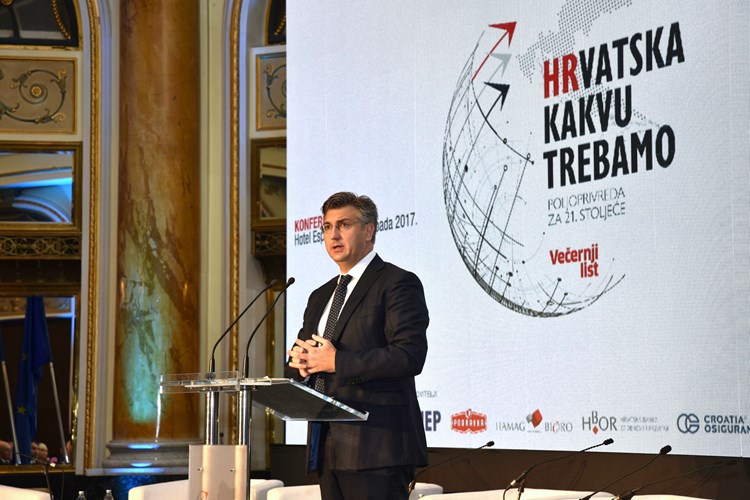


PM Plenkovic said that his government wanted to make family-run farms the core of the agriculture sector and use them to revitalise rural areas and for demographic renewal.
He said that the government was working on three key agriculture bills - on prevention of unfair trade practice, agricultural land, and family farms.
Among many challenges faced by farmers, he cited lack of farmland, natural disasters, decreased production in some of the branches of agriculture, and low purchase prices.
A decade of decreasing production
Plenkovic said that Croatia had all the prerequisites for agricultural production: an abundance of water, unpolluted soil and air, and hard-working people. "We have the knowledge, the will and the finance. So the key question is how to use billions of kuna in incentives to ensure an increase in production," he said, noting that Croatia had been experiencing a fall in agricultural production for an entire decade.
"We won't be satisfied until we turn that around," the PM said.
Last year, Croatia sold HRK 10 billion worth of food and imported HRK 16 billion, and the last year to record a surplus was 1992, Plenkovic said, adding that farmers' income is also key for the turnaround.
He said that HRK 3.3 billion had been paid in direct payments to farmers this year and another HRK 922 million would be paid in advance direct payments next month, 14 percent more than last year.
PM Plenkovic said that he wanted to see domestic, self-sustaining farmers producing products that would be on a par with imports and accessible to consumers. "In that way we will ensure the sustainability of agriculture, its competitiveness and development," he added.
Agriculture Minister Tomislav Tolusic said: "We want a self-sustaining, competitive and smart agriculture by 2027." He stressed the need to increase the area of irrigated farmland, put as much land as possible to agricultural use, increase field inspections of the use of incentives, and boost the production of ecological products.
Tolusic also noted the importance of using EU rural development funds and the need to ensure basic public infrastructure in rural areas, improve access to the broadband Internet, and enable the development of non-agricultural activities.
The conference also discussed the importance of new technologies for agriculture and its competitiveness, and connecting family farms with the food industry and tourism.
Text: Hina